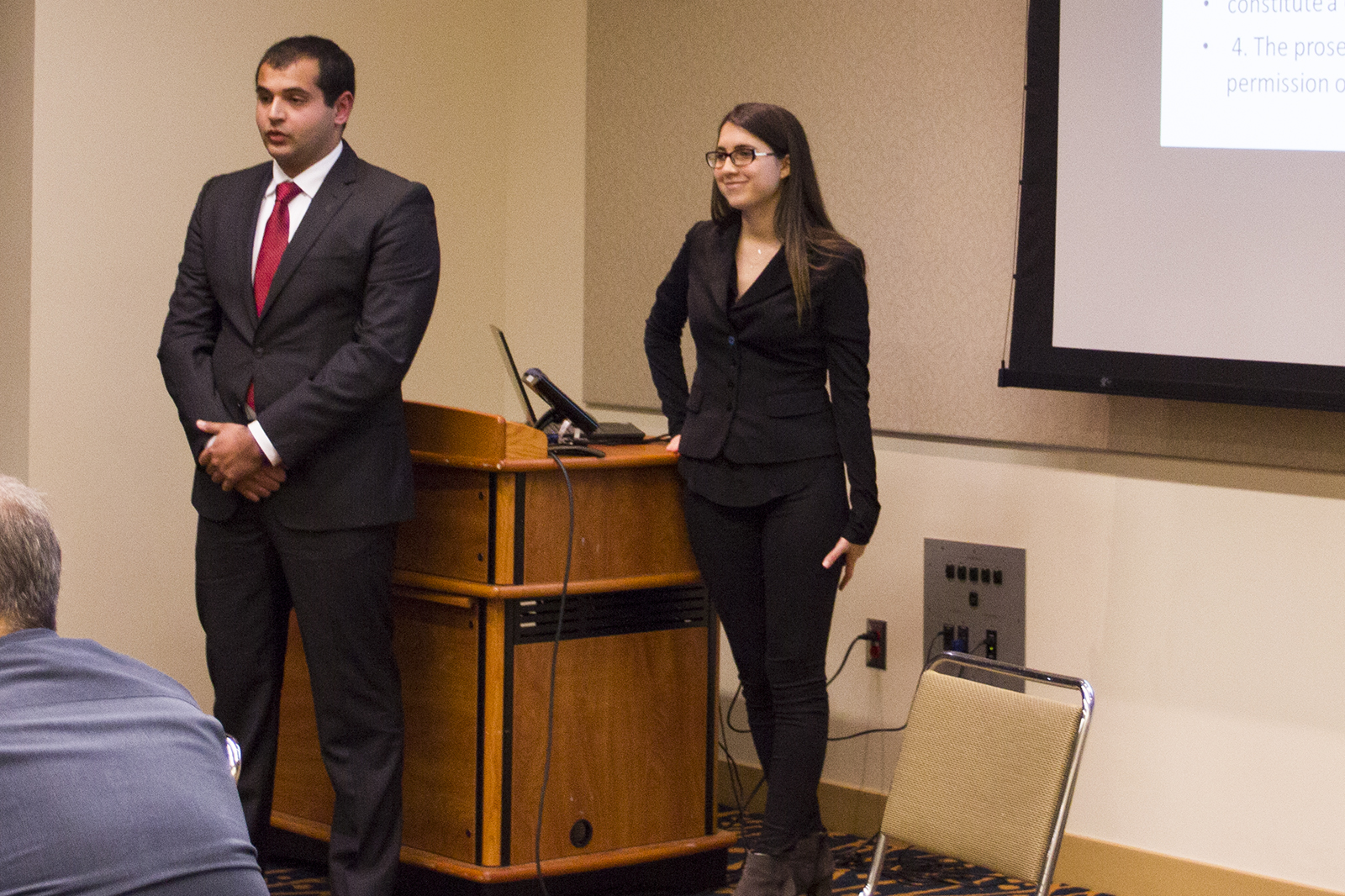Aram Ghoogasian: USAC must be ethically consistent in Turkey divestment vote

Members of the Turkish Cultural Club presented to the Undergraduate Students Association Council last week, asking them to vote against a resolution drafted by the Armenian Students’ Association to ask the University of California to divest from the Republic of Turkey. (Jintak Han/Daily Bruin)
By Aram Ghoogasian
Jan. 20, 2015 12:35 p.m.
One hundred years ago, my great-grandfather, a 9-year-old at the time, faced extermination at the hands of the Ottoman Empire because of his ethnicity.
Today, the Republic of Turkey categorically denies that its predecessor state committed genocide against the Armenian people. Denial of genocide itself has been called the final stage of genocide.
This state-sanctioned policy of denial, an attempt not only to rewrite a dark history but also to erase any trace of involvement in the crime, has apparently found an outlet on our campus. On Jan. 13, a number of UCLA students made a racist attempt to convince student leaders that the Armenian Genocide was in fact not a genocide in an effort to combat a resolution calling for divestment from the Republic of Turkey that will be presented to the student government Tuesday.
Moral consistency should be of the utmost importance for the Undergraduate Students Association Council when voting on measures that center on human rights violations. Based on councilmembers’ past voting records, namely on the Nov. 18 resolution to divest from a number of companies that are complicit in human rights violations in the occupied Palestinian territories, this resolution should pass with at least eight votes, the same number the previous resolution received.
USAC must now decide whether or not it wants to call on the University of California Board of Regents to divest the more than $70 million the UC currently invests in the Republic of Turkey by voting on “A Resolution to Divest from the Republic of Turkey to End the Perpetuation of the Armenian Genocide.” The resolution has human rights implications that USAC members need to be consistent in tackling.
Many councilmembers stated at the November meeting that they voted “yes” on the resolution divesting from American companies profiting from human rights violations because it was a human rights issue. This resolution would surely fall under the same category. Genocide and genocide denial are some of the most heinous crimes against humanity, and to say these aren’t human rights issues is incomprehensible.
The eight councilmembers who voted yes will be the focal point of Tuesday’s meeting. Unless councilmembers voice concerns over specific language in the upcoming resolution, something they’ve had the opportunity to do after multiple rounds of meetings with Armenian Students’ Association members, these eight people should remain consistent and vote “yes” Tuesday.
A “yes” vote in November tells us something about those eight councilmembers. First of all, they believe that divestment is an effective tactic to achieve change. If they thought divestment wasn’t worth talking about, they wouldn’t have voted “yes.”
Secondly, it means these eight councilmembers believe that it is USAC’s place to discuss issues that have off-campus political implications. A main argument against the November resolution was that USAC shouldn’t deal with international issues, whether our money is invested in them or not. A “yes” vote two months ago leaves this explanation for a “no” vote on Tuesday out of the question.
There is always, of course, the issue of divisiveness. Both divestment resolutions faced vocal opposition at one point or another. But the main knock on the resolution coming from the opposition isn’t its language; it’s its basis in historical fact despite the reality that the Armenian Genocide has been recognized by most prominent genocide scholars and historians.
The opposition had its chance to speak at last week’s meeting and used that opportunity to spew falsified historical facts, denying that the systematic murder, rape and deportation of 1.5 million Armenians was a genocide. The president of the Turkish Cultural Club, Gülnaz Kiper, even went so far as to say that she doesn’t think it’s “a big deal if we do or do not call it a genocide.” Another member of the Turkish Cultural Club, Selene Sari said the Armenian Genocide “is not a fact.” Treating this racist historical perspective as legitimate at a USAC meeting or anywhere is unacceptable.
Additionally, USAC members have no excuse to abstain or vote “no” because they don’t know enough about the Armenian Genocide. A simple Internet search provides more than enough information for someone to form an opinion on the second most studied genocide in human history next to the Holocaust. Willful ignorance is equal to willful denial.
The Armenian Students’ Association’s resolution shouldn’t be exempt from constructive criticism, but given the voting record of the eight who secured the passage of the previous resolution, this resolution’s failure would be a clear indication of hypocrisy. For people who claim to uphold human rights and hold themselves to high ethical standards, the choice should be an easy one.
Failure to remain consistent will raise questions about these councilmembers’ integrity as representatives, questions they will have to jump through hoops to answer should they vote “no” Tuesday night.
Email Ghoogasian at [email protected] or tweet him @aghoogasian. For general questions, email [email protected] or tweet us @DBOpinion.


